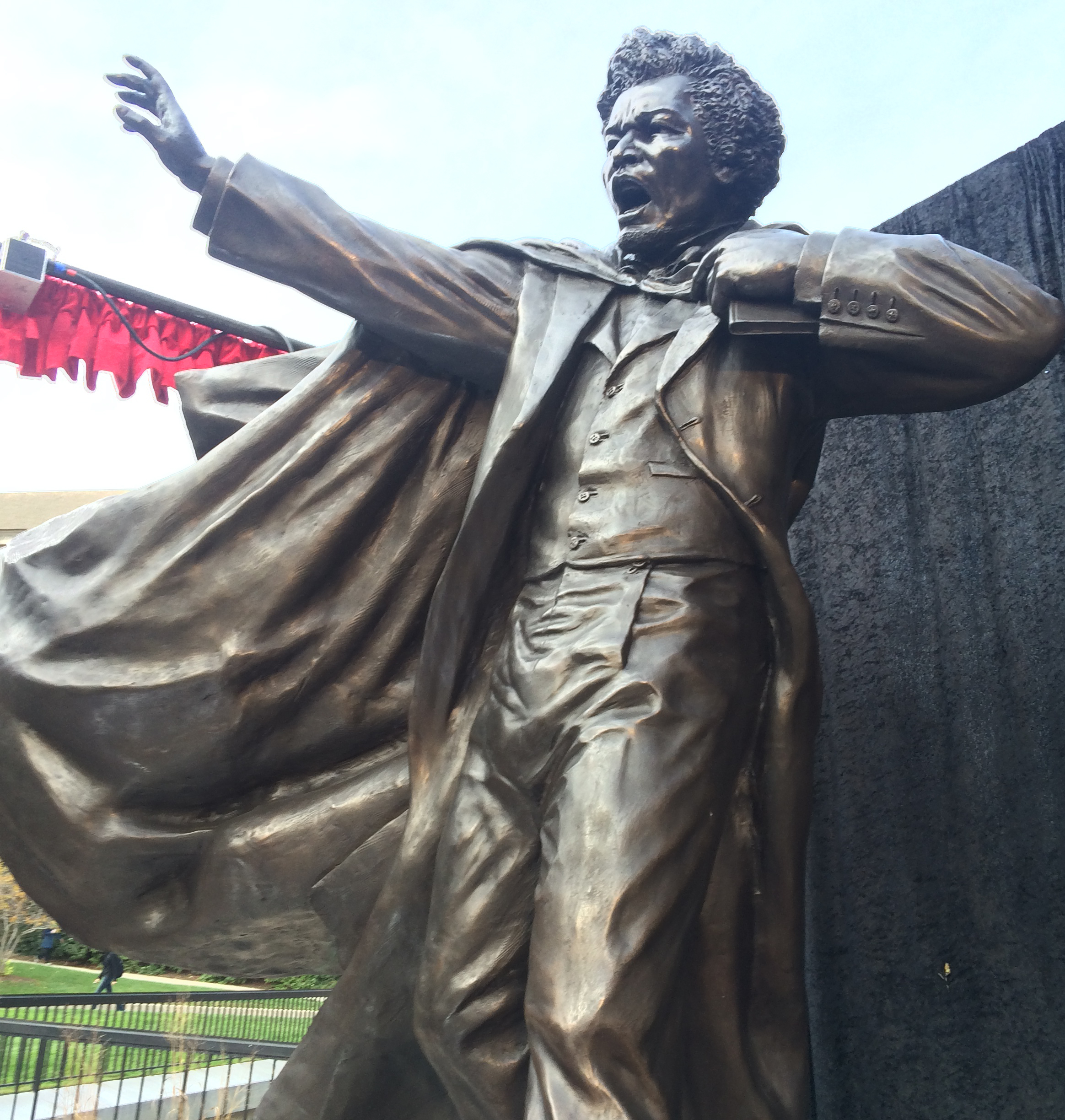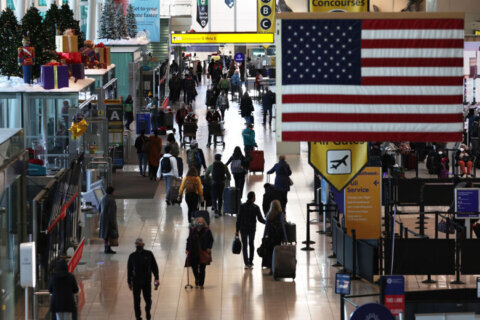
WASHINGTON — One of the passengers who boarded Amtrak’s Northeast Regional Train 164 at Baltimore’s Penn Station Saturday morning was an actor portraying Frederick Douglass accompanied by National Park Service Rangers.
Douglass, born into slavery on Maryland’s eastern shore in 1818, achieved international acclaim as an orator and writer devoted to abolishing slavery.
Saturday’s train ride commemorates Douglass’ perilous escape to freedom in the North on Sept. 3, 1838. The fugitive slave made the trip to New York City with borrowed freedom papers and disguised as a free African American sailor.
“He had tried to escape for the first time at the age of 18, two years prior. He knew he was going to try to make the escape again; this time it was successful,” said Kenneth Morris, co-founder and president of Frederick Douglass Family Initiatives, and great-great-great grandson of the famous statesman and abolitionist.
To remember the train ride, the National Park Service reenacted the trip on the exact route Douglass took as a 20-year-old fugitive slave.
“I think it’s really important that we also lift-up the life and legacy of my great ancestor — his wife, Anna Murray-Douglas,” Morris said. “I truly believe that there would be no Frederick Douglass had Anna not been in his life.”
Anna Murray-Douglas, born free in Baltimore, met Douglass when he was enslaved and hired out to work in the city.
“She was one of the first people to plant the seed of thought in his mind that he was not meant to be a slave,” Morris said. “She sold her featherbed to help finance his escape and helped to sew the sailor’s disguise, which he wore.”
After Douglass reached New York City, he sent for Anna. The couple married and traveled on to New Bedford, Massachusetts, where Douglass would launch his career as a renowned abolitionist. Frederick and Anna remained married for 44 years.
This year, the Park Service is celebrating the bicentennial of Frederick Douglass.
The Frederick Douglass Family Inititiative is celebrating the bicentennial with it’s “One Million Abolitionists” project. It’s printed 1 million copies of Douglass’ 1845 book — “The Narrative of the Life of Frederick Douglass: An American Slave.” The books are being distributed to young people who are asked to read it and then create special service projects to improve their communities.








